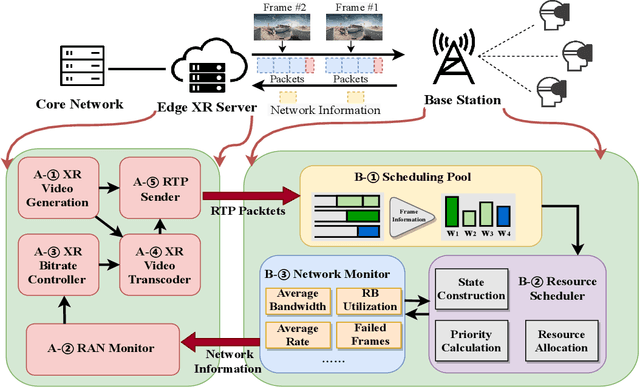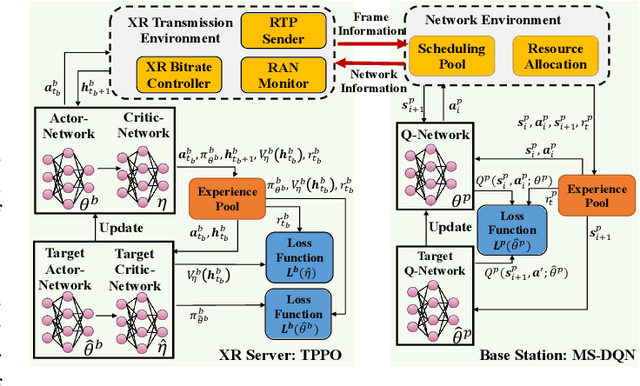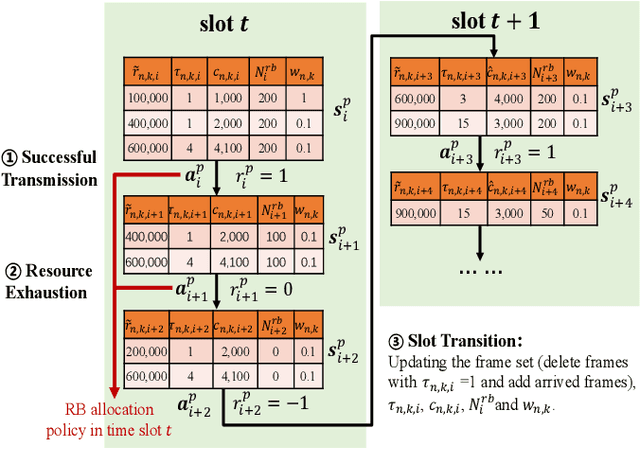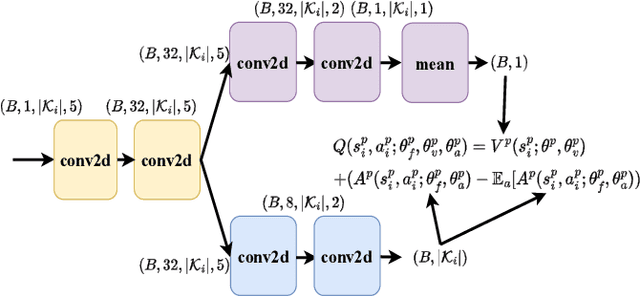Quality of Experience Oriented Cross-layer Optimization for Real-time XR Video Transmission
Paper and Code
Apr 15, 2024



Extended reality (XR) is one of the most important applications of beyond 5G and 6G networks. Real-time XR video transmission presents challenges in terms of data rate and delay. In particular, the frame-by-frame transmission mode of XR video makes real-time XR video very sensitive to dynamic network environments. To improve the users' quality of experience (QoE), we design a cross-layer transmission framework for real-time XR video. The proposed framework allows the simple information exchange between the base station (BS) and the XR server, which assists in adaptive bitrate and wireless resource scheduling. We utilize the cross-layer information to formulate the problem of maximizing user QoE by finding the optimal scheduling and bitrate adjustment strategies. To address the issue of mismatched time scales between two strategies, we decouple the original problem and solve them individually using a multi-agent-based approach. Specifically, we propose the multi-step Deep Q-network (MS-DQN) algorithm to obtain a frame-priority-based wireless resource scheduling strategy and then propose the Transformer-based Proximal Policy Optimization (TPPO) algorithm for video bitrate adaptation. The experimental results show that the TPPO+MS-DQN algorithm proposed in this study can improve the QoE by 3.6% to 37.8%. More specifically, the proposed MS-DQN algorithm enhances the transmission quality by 49.9%-80.2%.
 Add to Chrome
Add to Chrome Add to Firefox
Add to Firefox Add to Edge
Add to Edge